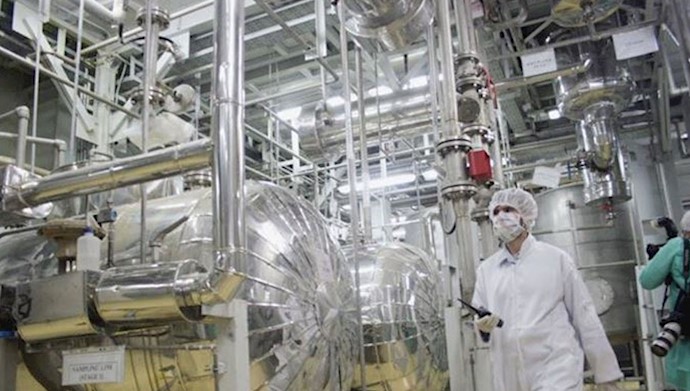Analysis by PMOI/MEK
Iran, June 18. 2019 – On Monday, the Iranian regime's Atomic Energy Organization declared that it will begin a new phase to reduce its commitments to the nuclear deal forged in 2015 with world powers, officially known as the Joint Comprehensive Plan of Action (JCPOA). According to regime officials, work at the Arak heavy water reactor facility will resume.
In April, the regime officially declared it would renege on some of its commitments. Tehran later declared that it had quadrupled its production of low-enriched uranium.
On May 8, Iranian regime president Hassan Rouhani declared that on the anniversary of the U.S. withdrawal from the JCPOA, his regime will no longer honor its commitments under the nuclear deal.
In this regard, the regime's state-run television said, "The Supreme National Security Council issued a statement in which it declared to the member states of the JCPOA that starting today, May 8, 2019, Iran will stop its measures under the agreement and will give a 60-day window to the countries remaining in the deal to implement their commitments, especially in the domain of banking and oil."
In the statement, the regime's Security Council stipulated that it would no longer commit itself to respect the constraints imposed to its enriched uranium and heavy water stockpile.
The regime also threatened to react if its nuclear dossier was present to the UN Security Council.
Accordingly, the foreign ministers of the UK, France, and Germany, and the EU foreign policy chief declared in a May 9 statement that they would not be accepting Tehran's 60-day ultimatum and reminded the regime of its commitments under the JCPOA.
Subsequently, French FM Jean-Yves Le Drian warned that any resumption of nuclear activities would place Tehran in breach of the nuclear accord.
In a similar vein, in a press conference on May 9, French President Emmanuel Macron underlined the need to complement the nuclear deal with other agreements that would address the Iranian regime's ballistic missile program and its destabilizing activities in the Middle East region.
Being caught off guard by the reaction of European states to its threats, the Iranian regime resorted to complaints.
"We shouldn't expect Europe to have the will to even launch a useless financial channel," wrote Keyhan, the mouthpiece of the regime's supreme leader, a reference to INSTEX, the European financial instrument that was supposed to help the Iranian regime circumvent the sanctions imposed by the U.S. on its banking sector.





